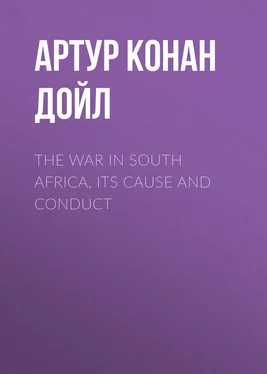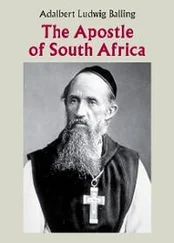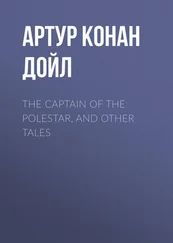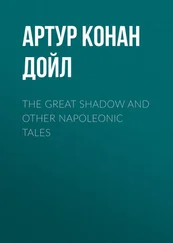Артур Дойл - The War in South Africa, Its Cause and Conduct
Здесь есть возможность читать онлайн «Артур Дойл - The War in South Africa, Its Cause and Conduct» — ознакомительный отрывок электронной книги совершенно бесплатно, а после прочтения отрывка купить полную версию. В некоторых случаях можно слушать аудио, скачать через торрент в формате fb2 и присутствует краткое содержание. Жанр: foreign_antique, foreign_prose, на английском языке. Описание произведения, (предисловие) а так же отзывы посетителей доступны на портале библиотеки ЛибКат.
- Название:The War in South Africa, Its Cause and Conduct
- Автор:
- Жанр:
- Год:неизвестен
- ISBN:нет данных
- Рейтинг книги:5 / 5. Голосов: 1
-
Избранное:Добавить в избранное
- Отзывы:
-
Ваша оценка:
- 100
- 1
- 2
- 3
- 4
- 5
The War in South Africa, Its Cause and Conduct: краткое содержание, описание и аннотация
Предлагаем к чтению аннотацию, описание, краткое содержание или предисловие (зависит от того, что написал сам автор книги «The War in South Africa, Its Cause and Conduct»). Если вы не нашли необходимую информацию о книге — напишите в комментариях, мы постараемся отыскать её.
The War in South Africa, Its Cause and Conduct — читать онлайн ознакомительный отрывок
Ниже представлен текст книги, разбитый по страницам. Система сохранения места последней прочитанной страницы, позволяет с удобством читать онлайн бесплатно книгу «The War in South Africa, Its Cause and Conduct», без необходимости каждый раз заново искать на чём Вы остановились. Поставьте закладку, и сможете в любой момент перейти на страницу, на которой закончили чтение.
Интервал:
Закладка:
In 1884 a deputation from the Transvaal visited England, and at their solicitation the clumsy Treaty of Pretoria was altered into the still more clumsy Convention of London. The changes in the provisions were all in favour of the Boers, and a second successful war could hardly have given them more than Lord Derby handed them in time of peace. Their style was altered from the Transvaal to the South African Republic, a change which was ominously suggestive of expansion in the future. The control of Great Britain over their foreign policy was also relaxed, though a power of veto was retained. But the most important thing of all, and the fruitful cause of future trouble, lay in an omission. A suzerainty is a vague term, but in politics, as in theology, the more nebulous a thing is the more does it excite the imagination and the passions of men. This suzerainty was declared in the preamble of the first treaty, and no mention of it was made in the second. Was it thereby abrogated or was it not? The British contention is that only the articles were changed, and that the preamble continued to hold good for both treaties. They point out that not only the suzerainty, but also the independence, of the Transvaal is proclaimed in that preamble, and that if one lapses the other must do so also. On the other hand, the Boers point to the fact that there is actually a preamble to the second convention, which would seem, therefore, to take the place of the first. As a matter of fact, the discussion is a barren one, since both parties agree that Great Britain retained certain rights over the making of treaties by the Republic, which rights place her in a different position to an entirely independent state. Whether this difference amounts to a suzerainty or not is a subject for the academic discussion of international jurists. What is of importance is the fact, not the word.
CHAPTER II
THE CAUSE OF QUARREL
Gold had been known to exist in the Transvaal before, but it was only in 1886 that it was realised that the deposits which lie some thirty miles south of the capital are of a very extraordinary and valuable nature. The proportion of gold in the quartz is not particularly high, nor are the veins of a remarkable thickness, but the peculiarity of the Rand mines lies in the fact that throughout this 'banket' formation the metal is so uniformly distributed that the enterprise can claim a certainty which is not usually associated with the industry. It is quarrying rather than mining. Add to this that the reefs which were originally worked as outcrops have now been traced to enormous depths, and present the same features as those at the surface. A conservative estimate of the value of the gold has placed it at seven hundred millions of pounds.
Such a discovery produced the inevitable effect. A great number of adventurers flocked into the country, some desirable and some very much the reverse. There were circumstances, however, which kept away the rowdy and desperado element who usually make for a newly-opened goldfield. It was not a class of mining which encouraged the individual adventurer. It was a field for elaborate machinery, which could only be provided by capital. Managers, engineers, miners, technical experts, and the tradesmen and middlemen who live upon them, these were the Uitlanders, drawn from all races under the sun, but with the Anglo-Celtic vastly predominant. The best engineers were American, the best miners were Cornish, the best managers were English, the money to run the mines was largely subscribed in England. As time went on, however, the German and French interests became more extensive, until their joint holdings are now probably as heavy as those of the British. Soon the population of the mining centres became about as numerous as that of the whole Boer community, and consisted mainly of men in the prime of life – men, too, of exceptional intelligence and energy.
The situation was an extraordinary one. I have already attempted to bring the problem home to an American by suggesting that the Dutch of New York had trekked west and founded an anti-American and highly unprogressive State. To carry out the analogy we will now suppose that that State was California, that the gold of that State attracted a large inrush of American citizens, that these citizens were heavily taxed and badly used, and that they deafened Washington with their outcry about their injuries. That would be a fair parallel to the relations between the Transvaal, the Uitlanders, and the British Government.
That these Uitlanders had very real and pressing grievances no one could possibly deny. To recount them all would be a formidable task, for their whole lives were darkened by injustice. There was not a wrong which had driven the Boer from Cape Colony which he did not now practise himself upon others – and a wrong may be excusable in 1835 which is monstrous in 1895. The primitive virtue which had characterised the farmers broke down in the face of temptation. The country Boers were little affected, some of them not at all, but the Pretoria Government became a most corrupt oligarchy, venal and incompetent to the last degree. Officials and imported Hollanders handled the stream of gold which came in from the mines, while the unfortunate Uitlander who paid nine-tenths of the taxation was fleeced at every turn, and met with laughter and taunts when he endeavoured to win the franchise by which he might peaceably set right the wrongs from which he suffered. He was not an unreasonable person. On the contrary, he was patient to the verge of meekness, as capital is likely to be when it is surrounded by rifles. But his situation was intolerable, and after successive attempts at peaceful agitation, and numerous humble petitions to the Volksraad, he began at last to realise that he would never obtain redress unless he could find some way of winning it for himself.
Without attempting to enumerate all the wrongs which embittered the Uitlanders, the more serious of them may be summed up in this way:
1. That they were heavily taxed and provided about seven-eighths of the revenue of the country. The revenue of the South African Republic – which had been 154,000 l. in 1886, when the goldfields were opened – had grown in 1899 to four million pounds, and the country through the industry of the new-comers had changed from one of the poorest to the richest in the whole world (per head of population).
2. That in spite of this prosperity which they had brought, they were left without a vote, and could by no means influence the disposal of the great sums which they were providing. Such a case of taxation without representation has never been known.
3. That they had no voice in the choice or payment of officials. Men of the worst private character might be placed with complete authority over valuable interests. The total official salaries had risen in 1899 to a sum sufficient to pay 40 l. per head to the entire male Boer population.
4. That they had no control over education. Mr. John Robinson, the Director-General of the Johannesburg Educational Council, has reckoned the sum spent on the Uitlander schools as 650 l. out of 63,000 l. allotted for education, making 1 s. 10 d. per head per annum on Uitlander children, and 8 l. 6 s. per head on Boer children – the Uitlander, as always, paying seven-eighths of the original sum.
5. No power of municipal government. Watercarts instead of pipes, filthy buckets instead of drains, a corrupt and violent police, a high death-rate in what should be a health resort – all this in a city which they had built themselves.
6. Despotic government in the matter of the Press and of the right of public meeting.
7. Disability from service upon a jury.
8. Continual harassing of the mining interest by vexatious legislation. Under this head come many grievances, some special to the mines and some affecting all Uitlanders. The dynamite monopoly, by which the miners had to pay 600,000 l. extra per annum in order to get a worse quality of dynamite; the liquor laws, by which the Kaffirs were allowed to be habitually drunk; the incompetence and extortions of the State-owned railway; the granting of concessions for numerous articles of ordinary consumption to individuals, by which high prices were maintained; the surrounding of Johannesburg by tolls from which the town had no profit – these were among the economical grievances, some large, some petty, which ramified through every transaction of life. These are the wrongs which Mr. W. T. Stead has described as 'the twopenny-halfpenny grievances of a handful of Englishmen.'
Читать дальшеИнтервал:
Закладка:
Похожие книги на «The War in South Africa, Its Cause and Conduct»
Представляем Вашему вниманию похожие книги на «The War in South Africa, Its Cause and Conduct» списком для выбора. Мы отобрали схожую по названию и смыслу литературу в надежде предоставить читателям больше вариантов отыскать новые, интересные, ещё непрочитанные произведения.
Обсуждение, отзывы о книге «The War in South Africa, Its Cause and Conduct» и просто собственные мнения читателей. Оставьте ваши комментарии, напишите, что Вы думаете о произведении, его смысле или главных героях. Укажите что конкретно понравилось, а что нет, и почему Вы так считаете.












